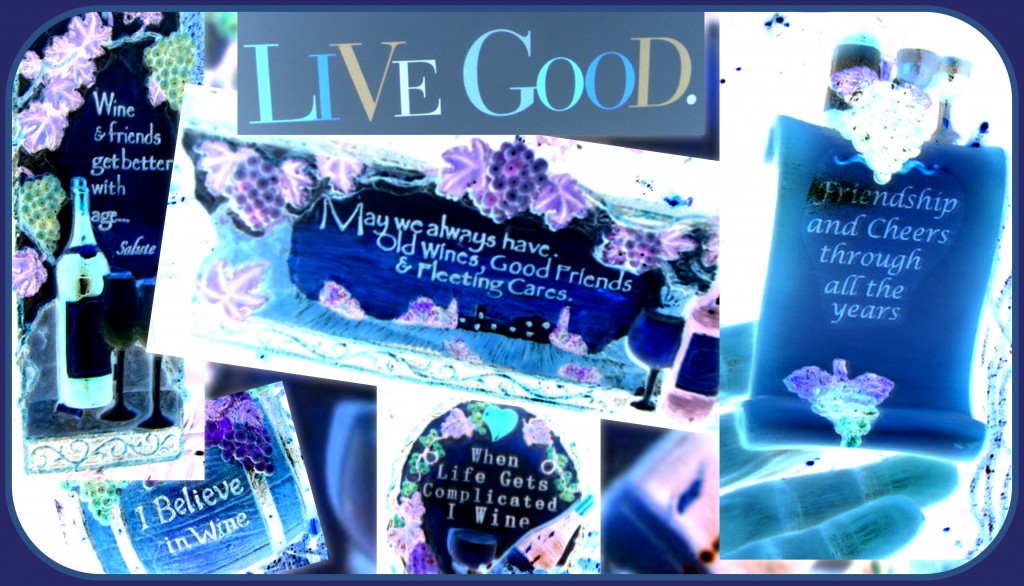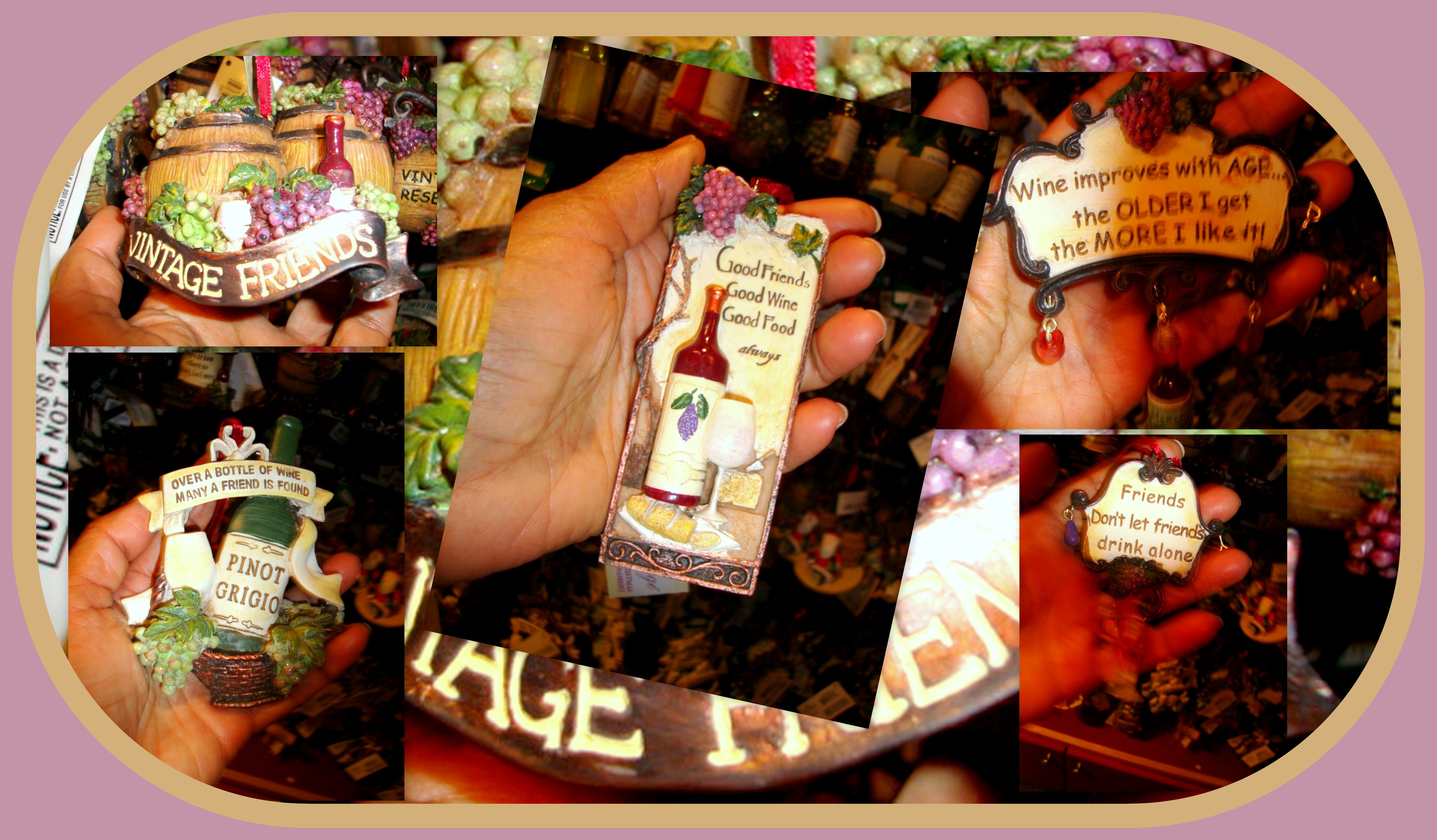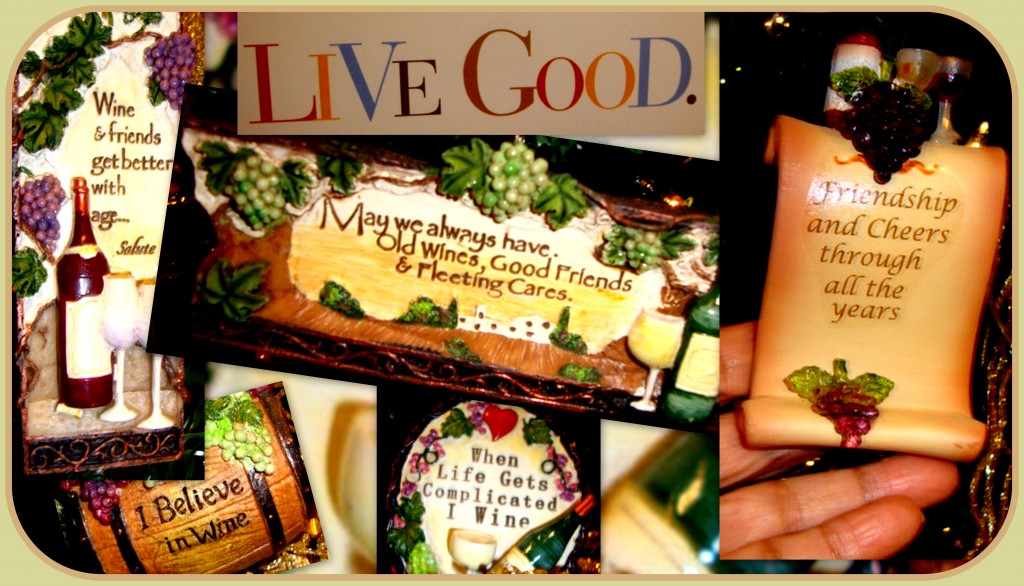
All the epithets in this collage were of interest to me since they were Christmas ornaments I saw in a year-round Christmas tree store. They are the kind of ornaments one buys for the wine-lover on your Christmas list. The addition of “Live Good” is my own idea. This image was on the cover of a journal in a bookstore.
It’s funny how certain images and sayings can act as triggers for past events or ideas one may have held at a certain time of life. This is what these sayings about wine did for me. There was a time in my life when I thought that I was Epicurean – a much younger age. I didn’t know much about Epicurus though. It was the “Eat, Drink, and Be Merry” stage. Life was about having a good time.
Yet, as I grew older, the existential question that we are all faced with arose – how to live good? For each person, the answer is different. It is something we are all actively pursuing – whether through education, wealth, public recognition, philanthropy, culinary delights, mysticism, wine, or any other source or resource. With age, we become interested in meaning.
It’s a relief to now discover that: “Eat, drink, and be merry, for tomorrow you die” comes from the book of Ecclesiastes in the Bible. Ecclesiastes 8:15, ‘Then I commended mirth, because a man hath no better thing under the sun, than to eat, and to drink, and to be merry’, and Isaiah 22:13, ‘Let us eat and drink; for to morrow we shall die.’ What a reliable source my friends and I were following!
On a lighter note, the ornaments for wine lovers were delightful and many have the word friendship in them. For all wine lovers, and those who are drinking other beverages, may you have the joy of friendship as you imbibe throughout the New Year.
Seriously though, to satisfy my own curiosity as to why I thought myself to be an Epicurean, here is what I found: “The Epicureans also claim to follow reason and nature, but here pleasure in one form or another recommends itself as the good we all seek for ourselves. Its founder, Epicurus, tells us that life is simple, the good is easily within our grasp, and happiness is living in harmony with your friends. Nothing more is needed. In fact, having more than one needs to satisfy legitimate animal desires leads to an uneasy mind filled with imaginary fears of losing what you do not need in the first place. The art of living, here, is to develop the skill to avoid the idols and temptations of the world, and simply to cultivate your garden in harmony with yourself and nature. For Epicurus, the art of living gives us the ability to maintain peace of mind. Part of this freedom comes in releasing an excessive fear of death. Such a fear, more than any other, hinders us in living. Death is nothing, and so nothing to fear. “Where I am, death is not. Where death is, I am not.” And if you say that it is precisely this ‘nothing’ that you fear, the reply is that it can only be something to fear while you are alive, so why waste the time. Again, we can lessen our fears by negotiating life in such a way as to avoid the shoals of superstition and the stares of vengeful gods. If gods exist, and are happy, then they will not associate themselves with unhappy humans. If the gods do not exist, it is the same. Stick to natural desires, which are easy to satisfy. Avoid vain desires that are expensive to satisfy and cause mental disturbances.” (Talking Philosophy)
Epicurus was not the hedonist that I had imagined him to be after all. At the end of the day, we all want to “Live Good” – in whatever way that fits in with our different situations, circumstances and life experiences, as well as the meaning we want our lives to have. This was a good learning exercise for me and hope it will be for you too.


